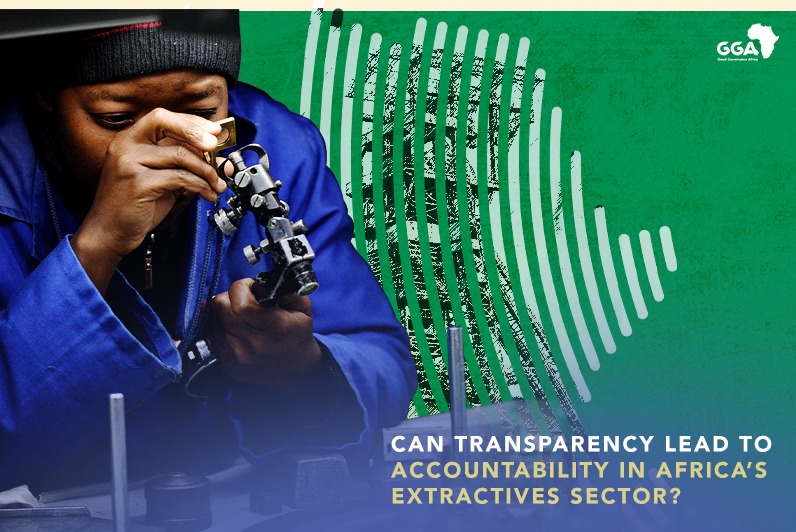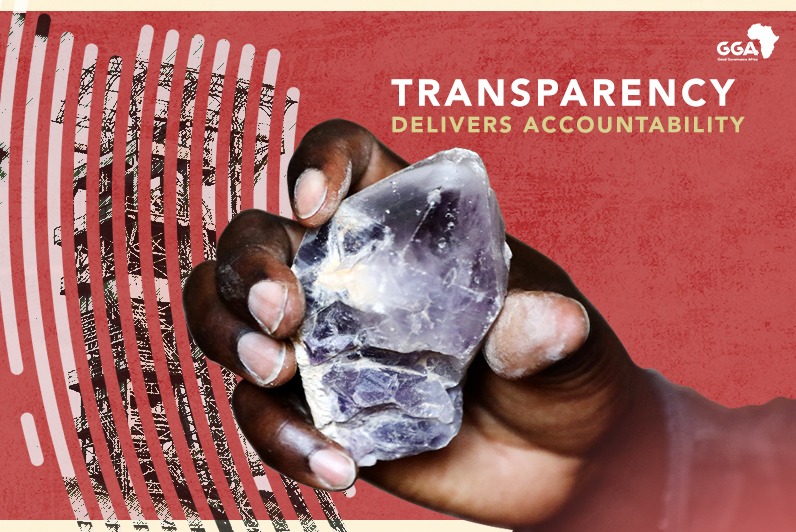
Extractive resources are different from other resources in many ways. To begin with, extractive resources (petroleum, minerals, etc.) are strategic and can even make advanced countries such as Japan depend on less developed countries like Angola and Algeria. In addition, the difference between the cost per unit of extractive resource production and their prices is high in most cases, implying the availability of large economic rents. Therefore, the ownership of extractive resources brings with it certain advantages that other resources may not have. These advantages should therefore translate into growth and enhanced well-being of citizens. However, this has not been the case in many resource-wealthy African countries.
These advantages should therefore translate into growth and enhanced well-being of citizens. However, this has not been the case in many resource-wealthy African countries.
Clearly, a widely held assumption is that the discovery and production of extractive resources such as oil, gas and minerals should lead to economic development. In order to manage these resources for the betterment of their people and avoid the paradox mentioned above, many countries have developed laws, set up institutions and joined international transparency initiatives and accords. However, these reforms have both strengths and limitations. On a positive note, they have promoted transparency; that is, making information on the resources and their management available and accessible to the citizens. On the other hand, such measures can be a ‘smokescreen’ hiding the real accountability challenges confronting extractive resource producing countries. For instance, some figures may not be published, published figures may be too complex to understand or there could be information overload.
In most resource rich African countries, the march towards transparency has occurred in three forms.
First, many laws have been passed that require transparency. For instance in Ghana, the Public Interest and Accountability Committee was established in 2011 under Section 51 of the Petroleum Revenue Management Act (PRMA) (Act 815). The Committee monitors and evaluates compliance with the Act by government and relevant institutions in the management and use of petroleum revenues and investments. It also provides space and a platform for the public to debate on whether spending prospects and management and use of revenues conform to development priorities. Additionally, the committee provides independent assessments on the management and use of petroleum revenues to assist Parliament and the Executive in the oversight and the performance of related functions. The Nigerian Extractive Industries Transparency Initiative Act (2007) and the Freedom of Information Act (2011) also contain transparency requirements. Similar laws can be found in other resource rich African countries.
The second is global transparency movements. The Extractive Industries Transparency Initiative (EITI) has 24 member countries in Africa. These countries disclose information on reserves, licenses, revenues, beneficial ownership and related issues. Disclosure of information on beneficial ownership has been very important since oftentimes politicians, politically exposed individuals and connected people with insider information can create businesses and, with little or no experience, bid to win contracts at the expense of highly competent companies. Therefore, publishing information of owners of businesses and their relations can promote accountability. It has been found that EITI disclosure has a positive impact on regulatory quality and rule of law. In addition, the Natural Resource Governance Institute (NRGI) ranks petroleum and mineral producing countries in its Resource Governance Index. Among the indicators ranked is the ‘Voice and Accountability’. In the 2017 edition, Ghana ranked first in Africa for Voice and Accountability, followed by Tunisia and Tanzania. The bottom three positions were occupied by Equatorial Guinea, Sudan and South Sudan. Indeed, mature producers like Angola scored below 50%. Other initiatives such as Publish What You Pay, conditions of development partners and Transparency International have been contributing to Africa’s good governance agenda.
The Extractive Industries Transparency Initiative (EITI) has 24 member countries in Africa. These countries disclose information on reserves, licenses, revenues, beneficial ownership and related issues.
The third is citizens’ demands for transparency. The growing demand for good governance in Africa is evident in the increasing number of civil society organizations, strong media and increasing quality research output among others. The challenge with civil society organizations is that due to competition for the few funds available, cohesion is not always there, and this may prove to be a problem if elite bargains between extractive companies and governments play ‘divide and rule’ against such accountability groups.
Despite these transparency initiatives, laws and pressure groups, accountability remains a challenge.
First, whilst countries are praised for the passage of ‘good governance laws’, insufficient attention is given to how the laws are implemented. For instance, a country can score well because it wants to use open and competitive bidding process to award mineral contracts. However, officials can put in place almost impossible criteria for companies that wish to apply, in addition to imposing undue delays. Consequently, only two or three politically connected pre-selected companies end up being able to submit bids. Second, officials often do not account to anyone so far as implementation is concerned. So, the provisions of these laws or protocols can be breached without any consequences. If not checked, such breaches become a norm and inform future actions.
A country can score well because it wants to use open and competitive bidding process to award mineral contracts. However, officials can put in place almost impossible criteria for companies that wish to apply, in addition to imposing undue delays.
Third, most of these laws and international commitments contain a number of discretionary provisions without any guidelines. Such provisions can be abused for personal gain. Fourth, whilst laws should refer to institutions such as the Ministry of a Commission, most of them concentrate power in individuals such as Ministers. Instead of ‘the Minister of Finance should publish’, it should be the Ministry of Finance. This would reflect the critical governance principle of the ‘politico administrative divide’, which separates individuals from their office. In doing this, dedicated units can be created for both transparency and monitoring. Finally, in most extractive producing countries in Africa, resources belong to the citizens. Therefore, the citizens should be the ultimate recipients of the benefits of transparency initiatives. Often, the measurement of some of these initiatives are limited to publications, on the assumption that such openness can translate into citizens’ well-being. Yes, sunshine may be the best disinfectant but the sun does not always shine. Steps need to be put in place to promote accountability, given that transparency is a necessary but often insufficient condition for attaining real accountability.
So what should be done?
- Implementation of laws and policies should be given much attention. Effort should be directed at the process, timing, stakeholders involved and the benefits of the laws to citizens
- Discretionary provisions in extractive-related laws should be guided by published regulations.
- There should be penalties for abuse of, or breach of, provisions in extractive related laws. Officials who violate the laws should be punished and their names should be? published to deter others.
- EITI, NRGI and other global bodies should monitor the implementation of reforms and how these are affecting the well-being of citizens.
- Disclosure of beneficial ownership information should be a norm in resource rich Africa countries
Ishmael Ackah is an Energy Economist with experience that spans public service, civil society, private sector and academia. He is the Regulatory and Expert of USAID’s West Africa Energy Program, Ghana. He is a Fellow of the Institute for Economic Affairs and the Energy for Growth Hub. He worked as the Head of Policy Unit, at the Africa Centre for Energy Policy, where he coordinated research and advocacy on accountant ability and transparency in sustainable energy management and petroleum revenue management. Ishmael served as Technical Advisor on Energy and Petroleum Policies to Ghana’s Minister for Planning for 2 years. In this role, he led the team that developed the energy and petroleum sections of the Coordinated Programme for Economic and Social Development Policies (Ghana’s current national vision-2017 to 2024). He was part of the Infrastructure sub-Technical Team that developed the energy demand scenarios for the Ghana Integrated Bauxite Development Authority (GIBADA) in 2018.













